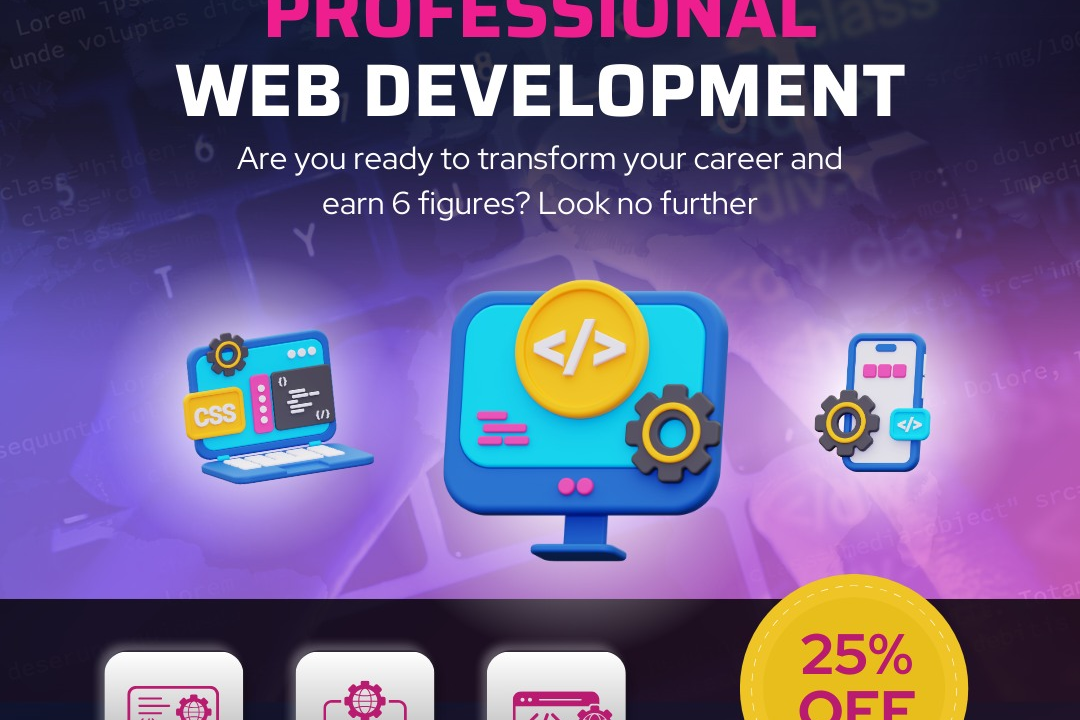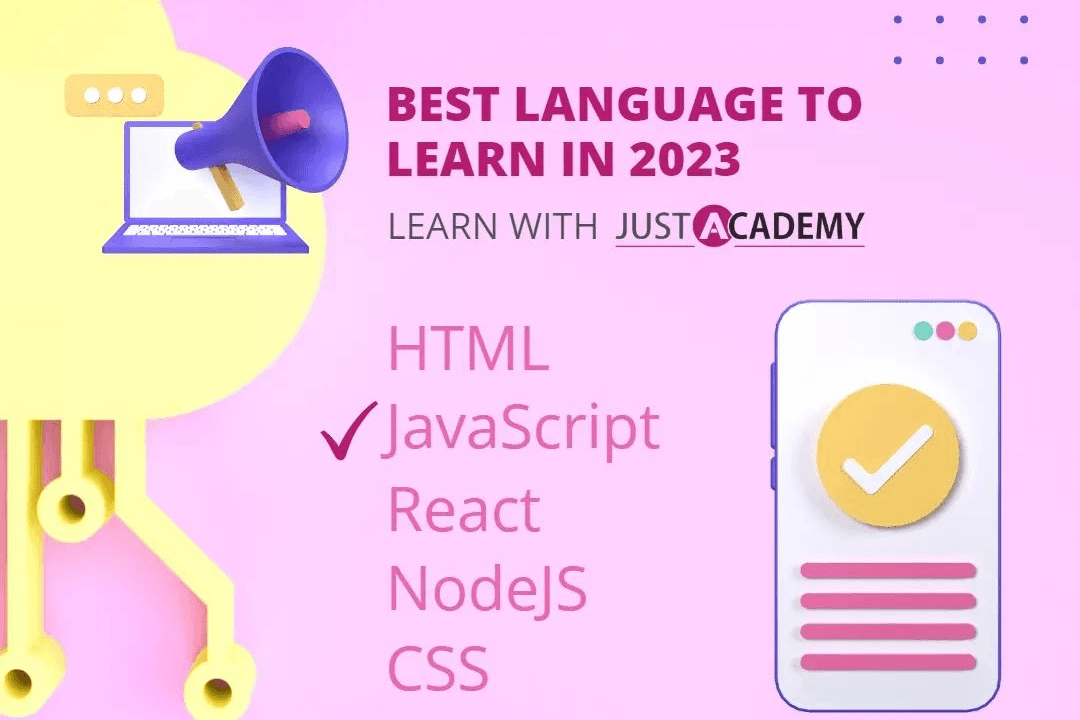Api In React Js Interview Questions
Advanced React.js Interview Questions: API Integration and Management
Api In React Js Interview Questions
APIs (Application Programming Interfaces) play a crucial role in React.js development by allowing React applications to communicate with other systems or services. They provide a standardized way for applications to access data, perform operations, and exchange information. This enables developers to integrate external functionalities into their applications, such as accessing databases, sending emails, or interacting with third-party services, without having to write complex code themselves.
To Download Our Brochure: https://www.justacademy.co/download-brochure-for-free
Message us for more information: +91 9987184296
1 - Explain the difference between GET and POST requests.
2) What is the purpose of an API key?
3) How do you handle errors when making API calls?
4) What is the purpose of a RESTful API?
5) How do you handle authentication and authorization with an API?
6) How do you secure an API against malicious attacks?
7) What is the difference between synchronous and asynchronous API calls?
8) What are the best practices for designing an API?
9) How do you test an API?
10) How do you use an API to build a web application?
11 - How does caching affect the performance of an API?
12) What is the difference between a server side API and a client side API?
13) How do you optimize the performance of an API?
14) How do you handle pagination in an API?
15) What are the ethical considerations when developing an API?
Strategies to Increase Points on Assessments:
1. Preparation and Study:
- Review course materials thoroughly and consistently.
- * Attend all classes and take detailed notes.
- * Seek clarification from the instructor or fellow students when needed.
- * Utilize study aids such as flashcards, summary charts, and practice questions.
- 2. Active Learning:
- * Engage actively in class discussions and ask questions.
- * Participate in study groups or tutor sessions.
- * Teach the material to yourself or others to reinforce understanding.
- 3. Time Management:
- * Plan a realistic study schedule and stick to it.
- * Break down large assignments into smaller chunks to make them manageable.
- * Prioritize studying based on the importance and difficulty of topics.
- 4. Retrieval Practice:
- * Regularly test yourself on the material through practice questions, quizzes, or self explanations.
- * Spacing out practice sessions over time improves retention.
- 5. Focus and Concentration:
- * Create a dedicated study space free from distractions.
- * Use techniques like the Pomodoro Technique to maintain focus during study sessions.
- * Take breaks as needed to avoid burnout and improve cognitive function.
- 6. Seek Feedback and Guidance:
- * Submit assignments on time and request feedback from the instructor.
- * Meet with the instructor during office hours or schedule additional appointments to clarify concepts and seek guidance.
- 7. Utilize Additional Resources:
- * Access online resources, such as videos, simulations, and practice problems.
- * Attend workshops or seminars offered by the institution or outside experts.
- * Join professional organizations or industry communities for access to resources and networking opportunities.
- 8. Optimize Test Taking Strategies:
- * Preview the exam instructions and format to familiarize yourself with it.
- * Manage your time wisely during the exam.
- * Read questions carefully and identify key terms.
- * Show all your work to demonstrate your understanding.
- * Double check your answers before submitting.
- 9. Seek Additional Support:
- * Consider seeking tutoring or academic support services if needed.
- * Reach out to peers or mentors for assistance or study support.
- 10. Maintain a Positive Attitude:
- * Believe in your abilities and focus on progress rather than perfection.
- * Seek encouragement from positive sources.
- * Reward yourself for milestones and accomplishments to stay motivated.
- Join the Google Local Guides program.* This is a great way to earn points for adding and reviewing places on Google Maps. You can also earn points for answering questions and posting photos.
- Complete tasks and challenges.* Google often offers tasks and challenges that you can complete to earn bonus points. These tasks can be anything from adding a certain number of places to taking a certain number of photos.
- Refer friends.* If you refer a friend to the Google Local Guides program, you'll both get bonus points.
- Use the Google Maps app.* Just by using the Google Maps app, you can earn points for things like getting directions, finding places, and sharing your location.
- Be active on social media.* Google often runs contests and giveaways on social media. By participating in these contests, you can earn points and win prizes.
- Course Overview
- Master the art of acing React JS API interview questions with our comprehensive course. Dive into real-world scenarios, explore advanced techniques for data fetching and handling, and gain a solid understanding of HTTP requests, RESTful APIs, and state management in React. This course equips you with the knowledge and confidence to excel in API-related interviews.
- Course Description
- This course is designed to equip you with the essential knowledge and skills necessary to ace API-related interview questions in React JS. Through a series of comprehensive lessons, you will delve into topics such as HTTP requests, RESTful APIs, data fetching and manipulation, and common API integration scenarios. By the end of the course, you will be confident in your ability to handle API-related questions in React JS interviews effectively.
- Key Features
- 1 - Comprehensive Tool Coverage: Provides hands-on training with a range of industry-standard testing tools, including Selenium, JIRA, LoadRunner, and TestRail.
- 2) Practical Exercises: Features real-world exercises and case studies to apply tools in various testing scenarios.
- 3) Interactive Learning: Includes interactive sessions with industry experts for personalized feedback and guidance.
- 4) Detailed Tutorials: Offers extensive tutorials and documentation on tool functionalities and best practices.
- 5) Advanced Techniques: Covers both fundamental and advanced techniques for using testing tools effectively.
- 6) Data Visualization: Integrates tools for visualizing test metrics and results, enhancing data interpretation and decision-making.
- 7) Tool Integration: Teaches how to integrate testing tools into the software development lifecycle for streamlined workflows.
- 8) Project-Based Learning: Focuses on project-based learning to build practical skills and create a portfolio of completed tasks.
- 9) Career Support: Provides resources and support for applying learned skills to real-world job scenarios, including resume building and interview preparation.
- 10) Up-to-Date Content: Ensures that course materials reflect the latest industry standards and tool updates.
Benefits of taking our course
Functional Tools
1 - React JS: A JavaScript library used to build user interfaces for web and mobile applications. It allows developers to create reusable components and manage state effectively.
2) Redux: A state management library for JavaScript applications. It provides a predictable and maintainable way to manage application state, making it easier to build complex and scalable applications.
3) Axios: A promise based HTTP client for JavaScript and Node.js. It allows developers to make API requests easily and handle asynchronous operations.
4) Jest: A testing framework for JavaScript applications. It provides a set of assertions and utilities to help developers write and run tests for their applications.
5) Enzyme: A testing utility library for React JS. It provides a set of methods and functions to facilitate the testing of React components and their interactions.
6) Mocha: A JavaScript testing framework that allows developers to write tests using synchronous or asynchronous functions. It provides a clean and easy to use interface for writing and running tests.
- Join a survey panel: Many companies offer surveys for cash or gift cards. You can find paid surveys on websites like Survey Junkie, Swagbucks, and InboxDollars.
- Sell your old stuff:* You can sell your old clothes, books, electronics, and other items on websites like eBay, Craigslist, and Facebook Marketplace.
- Become a mystery shopper:* Mystery shoppers get paid to visit stores and evaluate their customer service. You can find mystery shopping jobs on websites like BestMark and Sinclair Customer Metrics.
- Start a blog or YouTube channel:* You can earn money by sharing your thoughts and experiences with others. You can monetize your blog or YouTube channel with ads, affiliate marketing, or sponsorships.
- Offer your services:* If you have a skill or talent, you can offer your services to others. You can freelance on websites like Upwork and Fiverr, or you can start your own business.
- Invest your money:* You can earn money by investing your money in stocks, bonds, or mutual funds. However, it's important to remember that investing involves risk, and you could lose money.
- Start a side hustle:* A side hustle is a part time job or business that you do in addition to your regular job. There are many different side hustles you can start, such as driving for Uber or Lyft, delivering groceries, or pet sitting.
Browse our course links : https://www.justacademy.co/all-courses
To Join our FREE DEMO Session:
This information is sourced from JustAcademy
Contact Info:
Roshan Chaturvedi
Message us on Whatsapp:
Email id: info@justacademy.co












